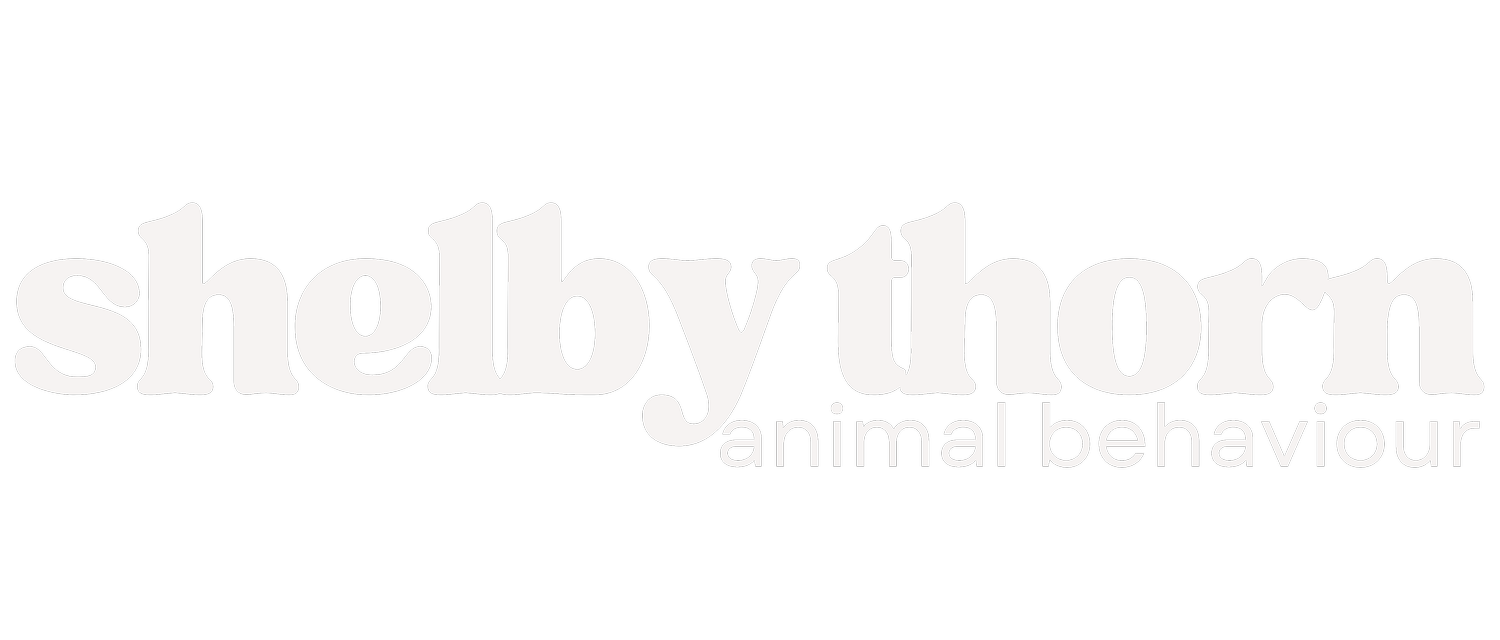No Shock Collars, Just Good Vibes: How To Chose An Animal Trainer
Did you know that pet training is an unregulated part of the animal welfare and care industry where anyone can claim to be an expert? Even if you find a Trainer or Behaviourist who has studied, there are many animal behaviour and training courses that are privately run, and do not have to meet any standards, and so there graduate Trainer’s can provide some very questionable advice.
So how the heck do you chose a pet trainer or animal behaviourist? Let’s break it down together.
Understand the Unregulated Nature of the Industry
The animal welfare and care space is largely undermanaged. This includes no official standards or licensing requirements for someone to call themselves a ‘dog trainer’, ‘behaviourist’ or something similar. This lack of regulation means that not all trainers are created equal — and some may use outdated or harmful methods. This is why it’s important to do your homework and match with someone who aligns with your values, particularly when it comes to the welfare and treatment of your pet.
Look for Qualifications and Education
When choosing a trainer, certification is a key indicator that they have undergone proper training and education. Look for certifications from reputable organisations like the Karen Pryor Academy, Delta Institute or the Companion Animal Sciences Institute. A good trainer will be open about their qualifications and the methods they use. Be wary of trainers who seem vague about their credentials or don’t provide clear information about how they approach training.
Watch for the Signs of a Punishment Based Trainer
One of the biggest red flags when choosing a trainer is if they rely on punishment-based methods such as fear, intimidation or consequence. These can include techniques like choke chains, shock collars, or leash corrections, which can cause not only physical but psychological harm. These approaches may suppress unwanted behaviours in the short term but often result in long-term negative consequences, including increased aggression or learned helplessness. Assess a potential trainers social media - what equipment is used in their photos or videos? What language do they use on their website when they talk about behaviour modification or training techniques? What do other clients reviews say about how they achieved behaviour change during their consultation with this trainer? All this information can tell you about how educated a ‘trainer’ may be, or give you insight into how they work with animals.
Ask About Their Philosophy and Services
Every trainer has their own unique approach, and it’s important to find someone whose philosophy aligns with your own values. A good trainer will emphasise:
Positive reinforcement: Rewarding good behaviour and teaching your dog what is desirable and environmental management instead of focusing on what they shouldn’t do and setting them up to fail in training situations.
Individualised plans: Understanding that each dog is unique and creating a training plan that works for your dog’s needs, temperament, and learning style.
Clear communication: Being able to explain their training techniques in a way that makes sense to you, and providing guidance you can follow consistently at home.
Ask questions like:
“How do you handle problem behaviors?”
“What techniques do you use to ensure a dog feels safe and confident during training?”
“How do you help owners maintain consistency between sessions?”
A qualified trainer will be happy to discuss their methods and provide you with a clear understanding of what to expect.
Look for a Trainer Who Builds Your Confidence, Too
Training isn’t just about teaching your dog; it’s about teaching you how to communicate effectively with your dog and build a stronger relationship. A great trainer will empower you as an owner, helping you understand why your dog behaves the way they do and giving you the tools to handle any situation that arises.
Force-free trainers take a collaborative approach, working with you to create a training plan that you, or even your veterinarian, feel comfortable with and can implement in your daily life. They’ll teach you how to be calm, consistent, and confident — which is essential for creating a well-behaved dog.
Training your dog is one of the most important investments you can make in their wellbeing and your relationship. By choosing a qualified, compassionate and educated trainer, you’re ensuring that your dog learns in a safe, positive environment that promotes trust and cooperation. Don’t settle for anything less than the best for your dog. Look for trainers who are committed to using science-backed, humane methods. A force-free trainer will not only help your dog learn but will help you become the best dog owner you can be.
For myself and many other humane trainers in our community, our priority is helping you find a trainer who’s the right fit for you and your dog using the best methods available — not just securing your business. If we’re not the right match, but you’re unsure where to turn for animal behaviour support, reach out! We’re happy to point you in the right direction with multiple alternative options, to make sure you’re in the right hands!

